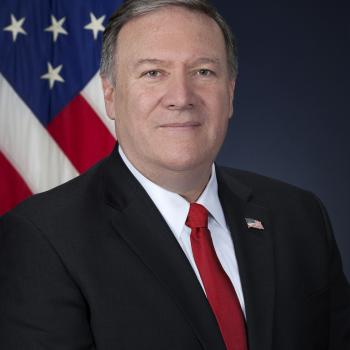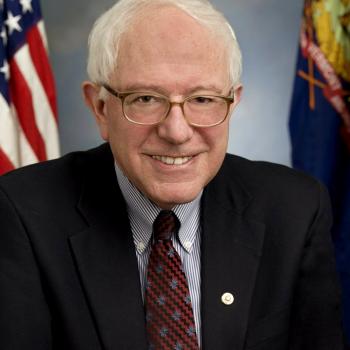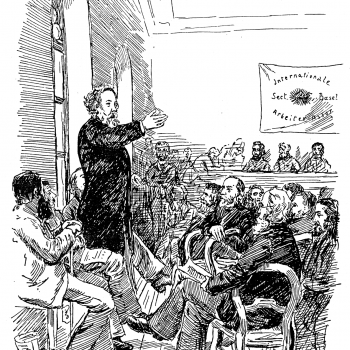Suppose you’re a government in the United States, and you want to censor someone. But there’s that meddlesome First Amendment, protecting freedom of speech and the press, and you just can’t find your way around the problem. Well, the Supreme Court has the answer for you. According to a recent decision, all you need do is delegate the job to a private company, and voila! Private companies aren’t subject to the First Amendment, and can restrict speech all they want. All you have to do is show that the company isn’t engaging in a traditionally exclusive public function. Here is how it went down:
“Time Warner (now known as Charter) operates a cable system in Manhattan. Under state law, Time Warner must set aside some channels on its cable system for public access. New York City (the City) has designated a private nonprofit corporation named Manhattan Neighborhood Network, commonly referred to as MNN, to operate Time Warner’s public access channels in Manhattan.” (Manhattan Community Access Corporation v. Halleck, Opinion of the Court, p. 3) [1]
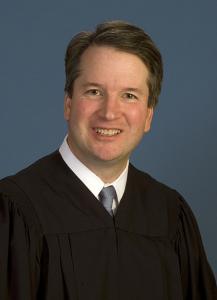 “Years ago, New York City…and Time Warner Entertainment Company…entered into a cable-franchise agreement….Time Warner received a cable franchise; the City received public-access channels. The agreement also provided that the public-access channels would be operated by an independent, nonprofit corporation chosen by the Manhattan borough president. But the City, as the practice of other New York municipalities confirms, could have instead chosen to run the channels itself….
“Years ago, New York City…and Time Warner Entertainment Company…entered into a cable-franchise agreement….Time Warner received a cable franchise; the City received public-access channels. The agreement also provided that the public-access channels would be operated by an independent, nonprofit corporation chosen by the Manhattan borough president. But the City, as the practice of other New York municipalities confirms, could have instead chosen to run the channels itself….
“…MNN appears to have been incorporated in 1991 for that precise purpose, with seven initial board members selected by the borough president (though only two thus selected today)….The City arranged for MNN to receive startup capital from Time Warner and to be funded through franchise fees from Time Warner and other Manhattan cable franchisees…. As the borough president announced upon MNN’s formation in 1991, MNN’s ‘central charge is to administer and manage all the public access channels of the cable television systems in Manhattan.’” (Id, dissent of Sotomayor, J., pp. 2-3)
“Dee Dee Halleck and Jesus Papoleto Melendez produced public access programming in Manhattan. They made a film about MNN’s alleged neglect of the East Harlem community. Halleck submitted the film to MNN for airing on MNN’s public access channels, and MNN later televised the film. Afterwards, MNN fielded multiple complaints about the film’s content. In response, MNN temporarily suspended Halleck from using the public access channels.
“Halleck and Melendez soon became embroiled in another dispute with MNN staff. In the wake of that dispute, MNN ultimately suspended Halleck and Melendez from all MNN services and facilities.
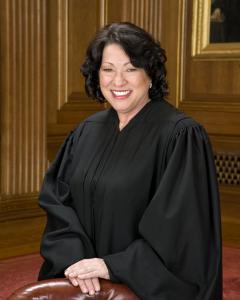 “Halleck and Melendez then sued MNN, among other parties, in Federal District Court. The two producers claimed that MNN violated their First Amendment free-speech rights when MNN restricted their access to the public access channels because of the content of their film.
“Halleck and Melendez then sued MNN, among other parties, in Federal District Court. The two producers claimed that MNN violated their First Amendment free-speech rights when MNN restricted their access to the public access channels because of the content of their film.
“MNN moved to dismiss the producers’ First Amendment claim on the ground that MNN is not a state actor and therefore is not subject to First Amendment restrictions on its editorial discretion.” (Id, Opinion of the Court, pp. 3-4)
The case made its way to the U.S. Supreme Court to resolve the question of “whether private operators of public access cable channels are state actors subject to the First Amendment.” (Id, p. 4) The answer: no, they are not. The Court concluded “that operation of public access channels on a cable system is not a traditional, exclusive public function. Moreover, a private entity such as MNN who opens its property for speech by others is not transformed by that fact alone into a state actor. In operating the public access channels, MNN is a private actor, not a state actor, and MNN therefore is not subject to First Amendment constraints on its editorial discretion.” (Id, p. 2)
Now, it is a component of the common good that people have access to suitable information. (Catechism of the Catholic Church, no. 1908) [2] And it is for the civil authorities to “’to defend and safeguard a true and just freedom of information.’” (Id, no. 2498) [3] And while a society ideally shouldn’t countenance such things as defamation or disinformation (Id, nos. 2497, 2498), we have to be cautious. We don’t want to become like those “totalitarian states which systematically falsify the truth, exercise political control of opinion through the media…and imagine that they secure their tyranny by strangling and repressing everything they consider ‘thought crimes.’” (Id, No. 2499)
The problem with this recent case, as stated by Justice Sotomayor in her dissent, is that the First Amendment shouldn’t be evaded simply because the government handed off its administrative duties to a private actor. (Manhattan Community Access Corporation, supra, dissent of Sotomayor, p. 13) It would give a whole new meaning to privatization.
The icon of St. Joseph the Worker is by Daniel Nichols.
Please go like Christian Democracy on Facebook here. Join the discussion on Catholic social teaching here.



